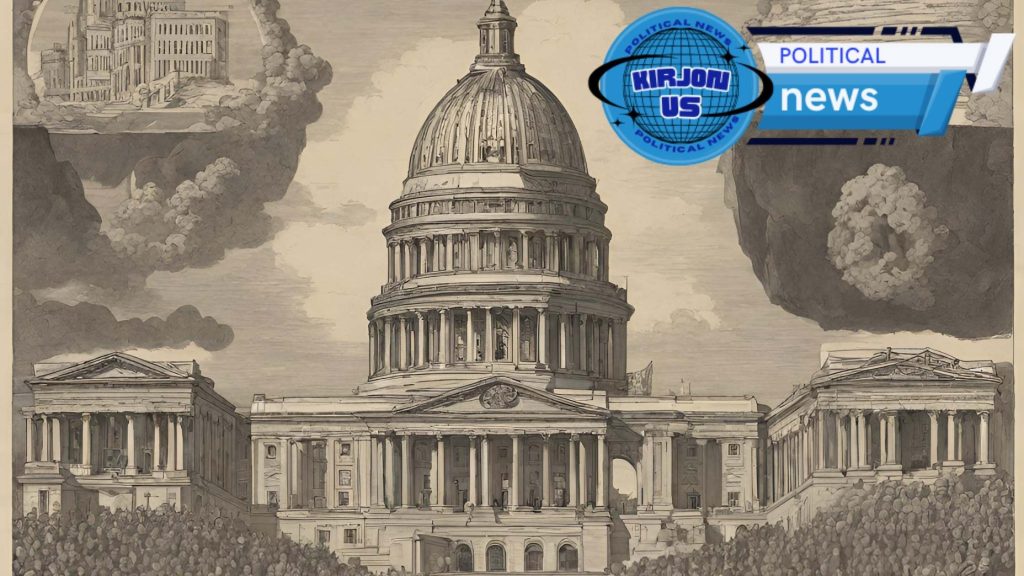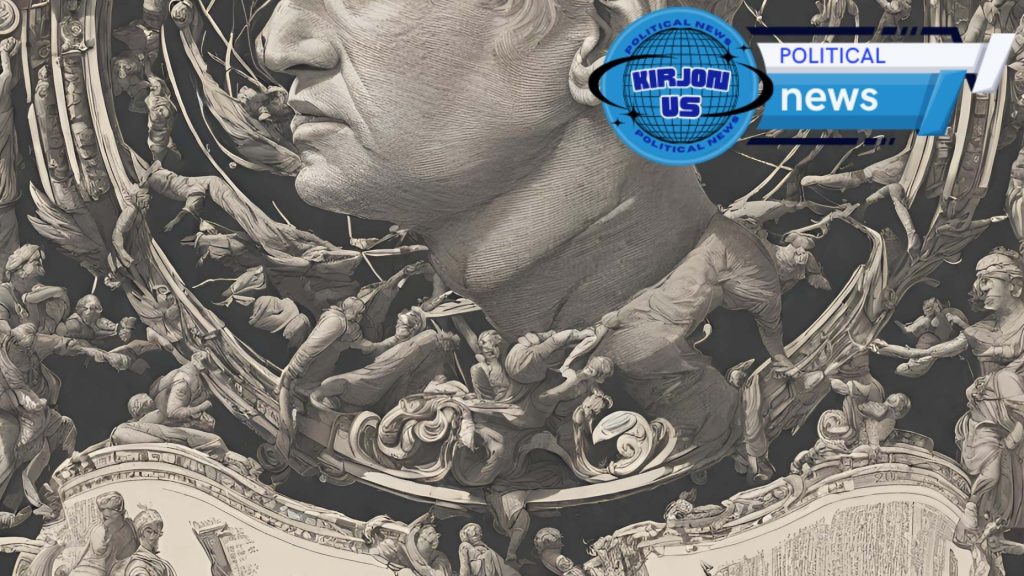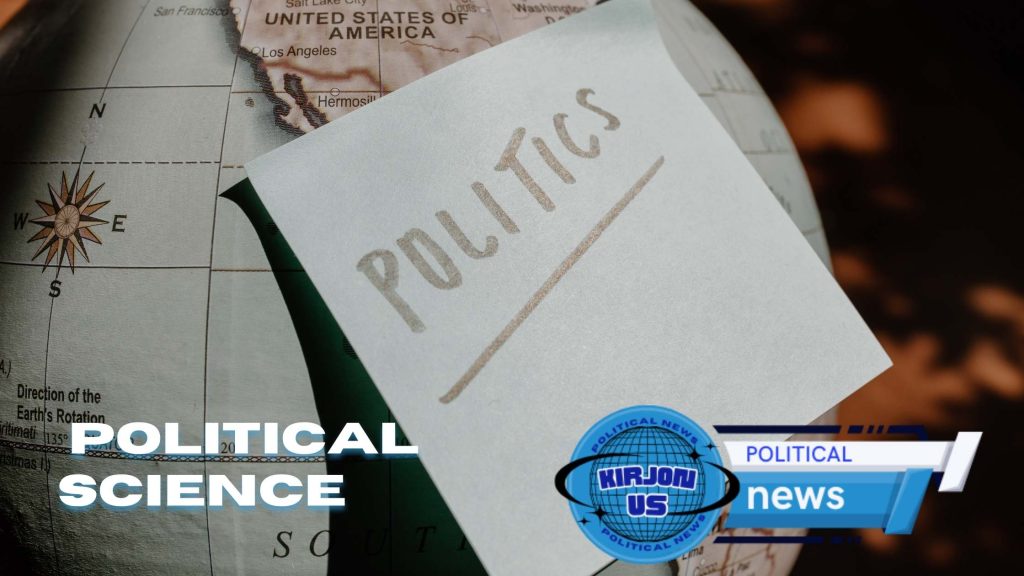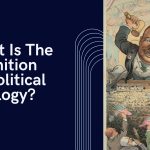Political theory is a vast and complex field that seeks to understand the mechanisms and structures of governance. At its core lies the concept of the state, a fundamental element in the study of political science. The meaning of state in political science is crucial to grasp as it underpins our understanding of governments, power structures, and societal dynamics.
In political theory, the state refers to a sovereign entity that exercises authority over a defined territory and its population. It embodies the highest level of political organization and carries the responsibility of governing and providing public services. Understanding the meaning of state in political science is vital not only for academics but also for citizens seeking to comprehend the systems that shape their lives.
Political scientists analyze the state’s role in governance, studying its relationship with other institutions and exploring how it operates within the broader political structure. This examination allows for a deeper understanding of political systems and their impact on societies.
By exploring the meaning of state in political science, researchers delve into the complexities of political theory, providing insights that can inform policies, shape public administration concepts, and contribute to the effective functioning of governments worldwide.
The Role of the State in Governance

In the realm of political science, the state assumes a central role in governance, serving as both a government organization and a sovereign entity. In essence, the state represents a collective body that exercises authority over a specific territory and its inhabitants, upholding law, order, and public welfare.
As a government organization, the state establishes a system of governance that encompasses various branches, such as the legislative, executive, and judicial bodies. These branches work together to formulate and implement policies, laws, and regulations that guide societal behavior and ensure the smooth functioning of public administration.
Furthermore, the state is recognized as a sovereign entity, possessing supreme power and autonomy within its territorial boundaries. This sovereignty enables the state to exercise ultimate authority, make decisions on behalf of its citizens, and represent their interests on the global stage.
To fully grasp the essence of governance, it is imperative to delve into its definition. Governance refers to the mechanisms, processes, and institutions through which authority is exercised and decisions are made. In this context, the state, as a governing body, assumes a fundamental role in establishing and maintaining effective governance.
Beyond its role as a government organization and a sovereign entity, the state is closely associated with the concept of public administration. Public administration encompasses the management and implementation of public policies and services, focusing on the efficient allocation of resources and the delivery of essential goods and services to the population.
The state, acting as the driving force behind public administration, ensures the provision of crucial services such as healthcare, education, infrastructure, and security. It undertakes responsibilities that directly impact the well-being and development of its citizens, making it an integral component of governance.
By understanding the multifaceted role of the state in governance, we gain insight into the intricate workings of political systems and their impact on society at large. The state’s function as a government organization and a sovereign entity, coupled with its involvement in public administration, lays the foundation for effective governance and the fulfillment of societal needs.
The Political Structure of a State

In the study of political science, the political structure of a state is a crucial aspect to understand its governance system. It refers to the framework of institutions, processes, and relationships that shape the exercise of political power within a nation.
At the heart of the political structure are the various components and institutions that collectively make up the state’s governance system. These include the executive branch, legislative branch, and judicial branch, each with its specific roles and responsibilities.
The executive branch is responsible for implementing and enforcing laws, and it is usually headed by a president, prime minister, or monarch. This branch plays a significant role in decision-making and policy formulation, ensuring the smooth functioning of the state.
The legislative branch, often composed of a parliament or congress, is responsible for making laws and representing the interests of the people. It is a crucial component of the political structure, as it ensures that the voices of the citizens are heard and taken into account.
The judicial branch, headed by the courts, is responsible for interpreting laws and ensuring their application. It plays a vital role in upholding justice, resolving disputes, and protecting the rights of individuals, thus maintaining the rule of law.
Nation-State Theory

In addition to understanding the political structure, the nation-state theory offers valuable insights into the structure of a state. This theory suggests that a nation-state is an ideal form of political organization where a state’s boundaries align with the boundaries of a particular nation or group of people sharing a common identity, language, culture, or history.
The concept of a nation-state emphasizes the idea of sovereignty and self-determination for a particular group of people within a defined territory. It recognizes the significance of a shared political, cultural, and social identity in shaping the structure and governance of a state.
Understanding the nation-state theory provides valuable context for analyzing the political structure of a state. It helps identify the factors that influence power dynamics, decision-making processes, and the overall functioning of the governance system.
By examining both the political structure and the nation-state theory, we gain a comprehensive understanding of how states are organized and governed. This knowledge is crucial for policymakers, scholars, and individuals interested in political science, as it sheds light on the intricate workings of a state’s power structure and its impact on society.
Conclusion
In conclusion, the meaning of the state in political science is a crucial concept in political theory. The state serves as a government organization and a sovereign entity responsible for governance. It plays a vital role in shaping society through its impact on power structures.
Throughout this article, we have explored the role of the state in governance and its significance in political science. We have highlighted how the state acts as a governing body, ensuring the administration of public affairs and the implementation of policies that affect society as a whole.
Additionally, we have discussed the political structure of a state, including its various components and institutions. The nation-state theory provides valuable insights into understanding the structure and dynamics of a state, further highlighting its importance in political science.
FAQ
What is the meaning of state in political science?
The state, in the context of political science, refers to a sovereign entity that exercises authority and control over a defined territory and population. It is a fundamental concept in political theory and serves as the primary unit of political organization and governance.
What is the role of the state in governance?
The state plays a crucial role in governance as a government organization and a sovereign entity. It establishes and enforces laws, maintains order, provides public services, and protects the rights and interests of its citizens. The state is responsible for making decisions and implementing policies that shape society and guide public administration.
What is the political structure of a state?
The political structure of a state refers to the various components and institutions that make up its governance system. This includes the executive, legislative, and judicial branches of government, as well as administrative agencies and local governing bodies. The nation-state theory, which posits that political and territorial boundaries should align with cultural or ethnic identities, offers insights into understanding the structure of a state.







